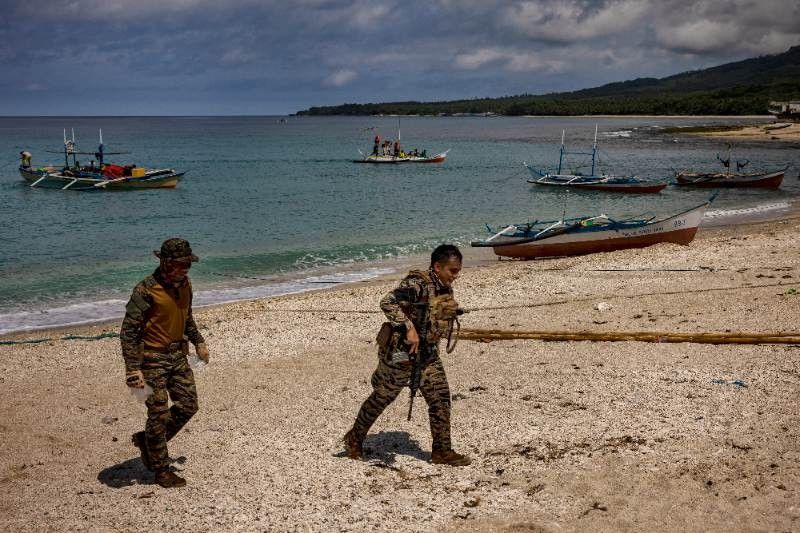China-Taiwan tension a 'major concern' for Philippines

MANILA, Philippines — The Philippine government considers the escalating tensions in Taiwan Strait a “major concern” that could affect the country, according to a document published by the government.
The government said in its National Security Policy 2023 to 2028 that the Taiwan-China relations have the “potential to be the flashpoint in the region.”
“The Philippines is concerned about its economic stability, a potential influx of refugees, and the welfare of overseas populations,” the government said in the document.
“Any military conflict in the Taiwan Strait would inevitably affect the Philippines given the geographic proximity of Taiwan to the Philippine archipelago and the presence of over 150,000 Filipinos in Taiwan,” it added.
China claims Taiwan, and has vowed to take the democratic island one day—by force, if necessary—and ramped up political and military pressure against it.
In April, Chinese Ambassador Huang Xilian “advised” the Philippines against supporting the independence of neighboring Taiwan if it “cares genuinely” about the OFWs based in the island.
The envoy made the statement after Manila gave Washington access to more military bases, some of which are located in Isabela and Cagayan—northern provinces facing Taiwan.
WPS issue a top concern
For the Philippine government, the West Philippine Sea issue remains the country’s primary national interest.
“The divergences of claims, as well as the claimants’ methods of asserting their positions, continue to pose strategic challenges, endangering not only the country’s territorial integrity, but also the Filipino people’s exercise of legitimate rights and their safety and well-being,” the document read.
Last week, the Philippines summoned Huang and protested China’s “illegal actions” after the China Coast Guard blocked and fired water cannons at boats on a resupply mission. Officials said the government will not abandon the Ayungin Shoal in the Spratly Islands.
Beijing claims the majority of the South China Sea, including parts that Manila calls the West Philippine Sea, as its own, using a “nine-dash line” on maps that an arbitration ruling in 2016 declared has no legal basis.
The government also said the “heightened rivalries among the major powers are contributing to a more tense geopolitical landscape.”
The plan also identified political stability and public safety, economic strength, ecological balance and climate change resiliency, and cyber security as the government’s national security interests. — Gaea Katreena Cabico
- Latest
- Trending































